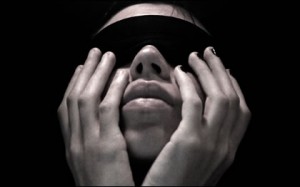Sometime a few years back some of my friends introduced me to the Johari Window. A Johari Window is a cognitive psychological tool created by Joseph Luft and Harry Ingham in 1955 in the United States, used to help people better understand their interpersonal communication and relationships. When performing the exercise, subjects are given a list of 56 adjectives and pick five or six that they feel describe their own personality. Peers of the subject are then given the same list, and each pick five or six adjectives that describe the subject. These adjectives are then mapped onto a grid.


Among the four quadrants, I was most concerned about my blind spots. These are traits I am unconscious of, yet seem to exhibit from another’s point of view. Left unaware, this hidden persona of mine could be disparaging to the relationships surrounding me.
“The way of a fool seems right to him, but a wise man listens to advice.” – Proverbs 12:15
I would often find myself dismissing symptoms of my self-hidden behavior as something “normal” and non-offensive, and even reason out to the point of resistance – justifying such manifestations. In frustration I often retort, “You don’t understand the whole story!”
Some may relate with this struggle – that when we are given unsolicited advice to address it we find difficulty in obedience. Perhaps it is the case because we have never confided everything, and so by residing to the fact that they lack enough knowledge of the situation we feel wrongly judged and accused. As my discipler once explained in one of our accountability discussions, “I can only help you to the extent of what I know – of how much you are willing to tell me. I cannot help you in your walk if I don’t know what’s going on.”
I would like to believe that counsel includes a loving rebuke – which often springs when we are caught blindsided by people who concern themselves enough to take notice. We have to come into grips with the fact that there are facets of us that are more evident to others than to ourselves. And with this acceptance, we must find the humility to listen and the wisdom to understand. Accountability starts with laying down the facts – detailed and intimate – and being open to the possibility that we may not be seeing these facts as they are.
“Do not reprove a scoffer, or he will hate you; reprove a wise man and he will love you. Give instruction to a wise man and he will be still wise; teach a righteous man and he will increase his learning.” – Proverbs 9:8
Accountability would [almost] always involve disagreements of varying degrees, but there is wisdom in listening to what we perceive to be an opposing standpoint. It could be that we are operating on our blind spots, and we are invited to a dialogue to let us know that what we’re doing is either unedifying to someone, subject to misinterpretation by the observing public, a potential issue, or simply contrary to what the Bible says. By being pointed out our blind spots, we are able to do something about them and develop our character closer to being Christ-like.
If no one rebukes us, we might be doing the right thing. Either that or perhaps no one knows or cares about what we do. We are blessed when our blind spots are brought to our attention. When it happens, let us listen; because someone loves us enough to be our extra set of eyes when we cannot see the reality and consequence of our own actions and behavior. God, too, loves us – so much that He won’t allow us stay the way we are.






